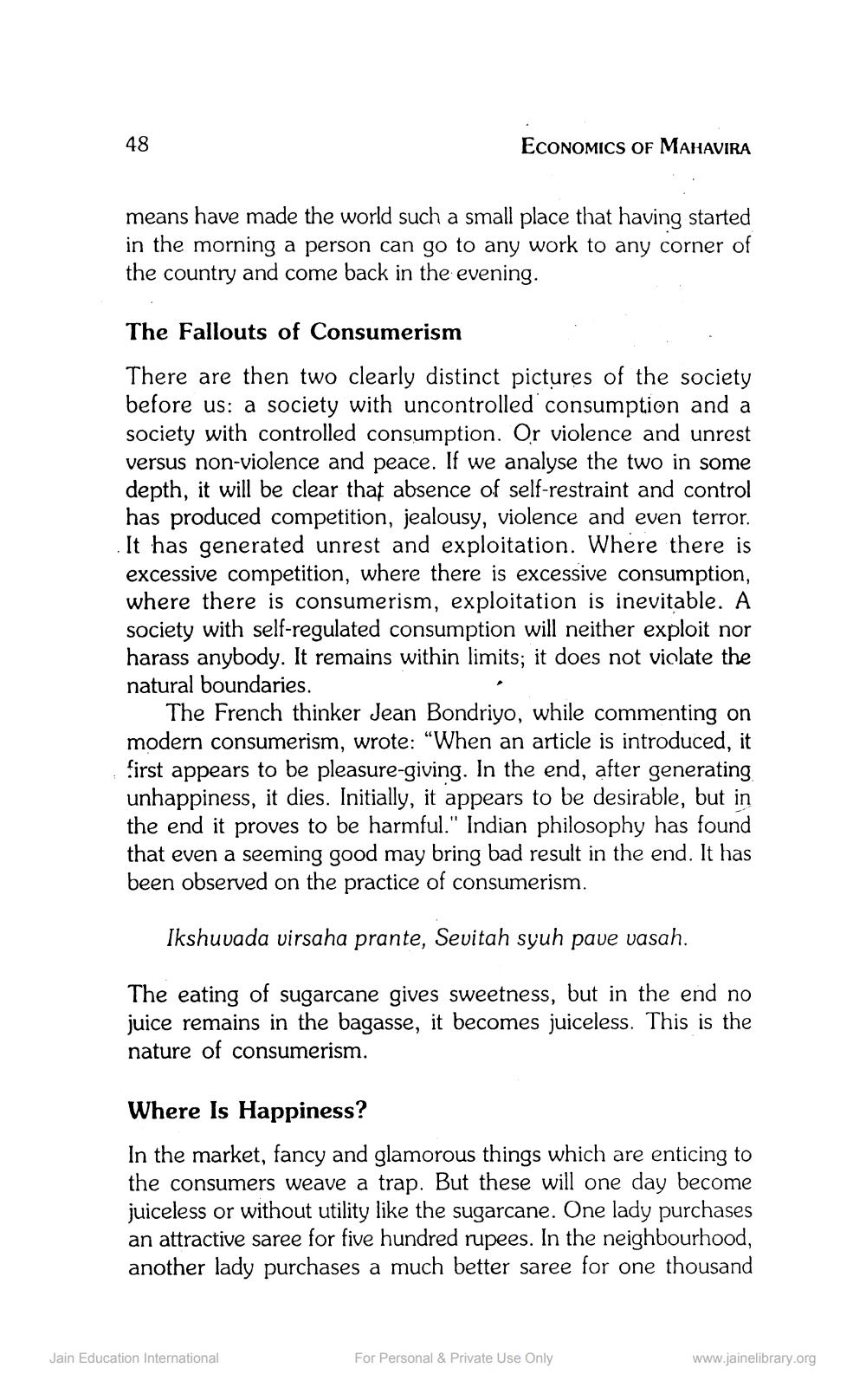________________
48
ECONOMICS OF MAHAVIRA
means have made the world such a small place that having started in the morning a person can go to any work to any corner of the country and come back in the evening.
The Fallouts of Consumerism There are then two clearly distinct pictures of the society before us: a society with uncontrolled consumption and a society with controlled consumption. Or violence and unrest versus non-violence and peace. If we analyse the two in some depth, it will be clear that absence of self-restraint and control has produced competition, jealousy, violence and even terror. . It has generated unrest and exploitation. Where there is excessive competition, where there is excessive consumption, where there is consumerism, exploitation is inevitable. A society with self-regulated consumption will neither exploit nor harass anybody. It remains within limits; it does not violate the natural boundaries.
The French thinker Jean Bondriyo, while commenting on modern consumerism, wrote: “When an article is introduced, it first appears to be pleasure-giving. In the end, after generating unhappiness, it dies. Initially, it appears to be desirable, but in the end it proves to be harmful." Indian philosophy has found that even a seeming good may bring bad result in the end. It has been observed on the practice of consumerism.
Ikshuvada virsaha prante, Sevitah syuh pave vasah.
The eating of sugarcane gives sweetness, but in the end no juice remains in the bagasse, it becomes juiceless. This is the nature of consumerism.
Where Is Happiness? In the market, fancy and glamorous things which are enticing to the consumers weave a trap. But these will one day become juiceless or without utility like the sugarcane. One lady purchases an attractive saree for five hundred rupees. In the neighbourhood, another lady purchases a much better saree for one thousand
Jain Education International
For Personal & Private Use Only
www.jainelibrary.org




